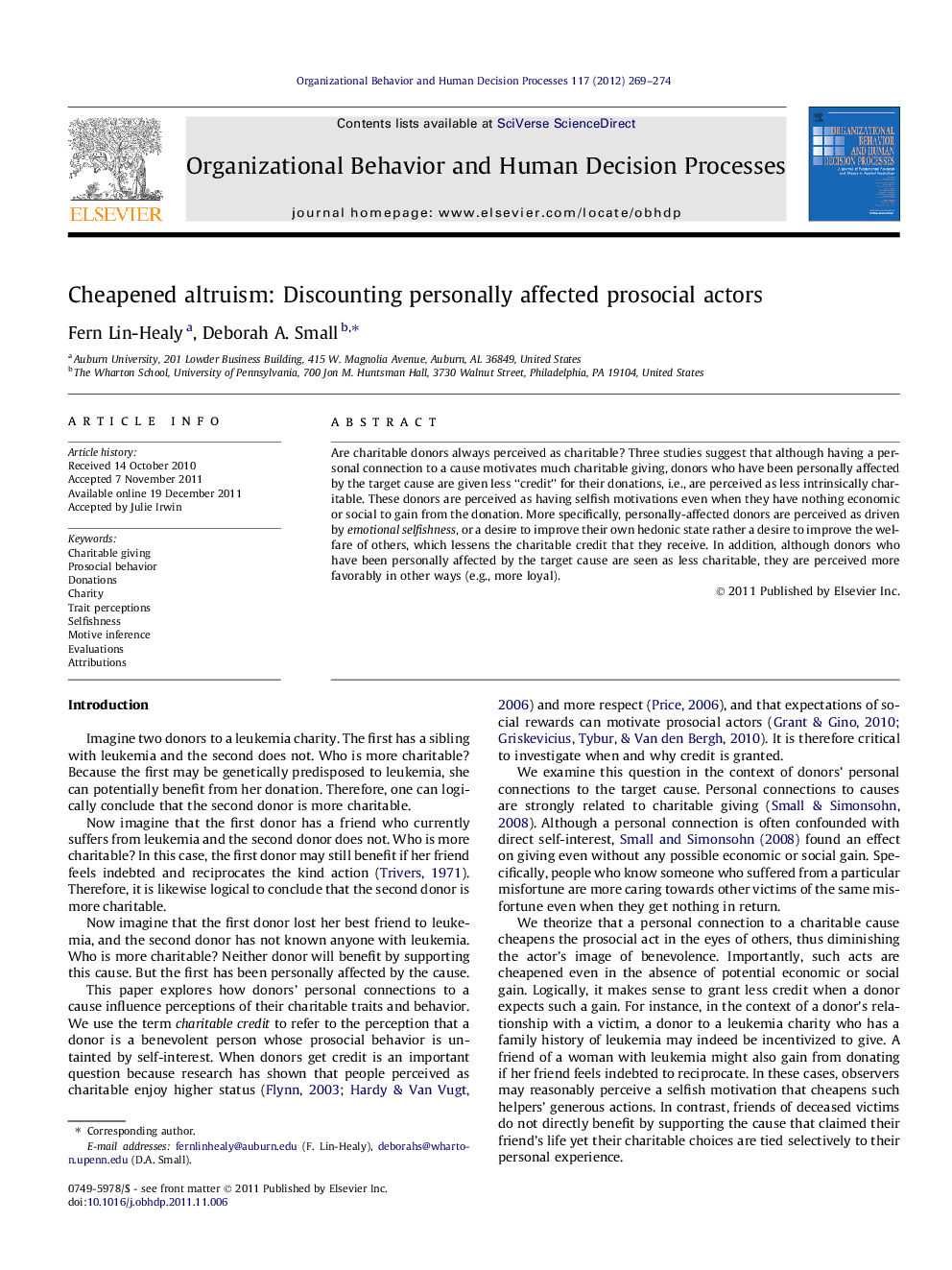| Article ID | Journal | Published Year | Pages | File Type |
|---|---|---|---|---|
| 888654 | Organizational Behavior and Human Decision Processes | 2012 | 6 Pages |
Are charitable donors always perceived as charitable? Three studies suggest that although having a personal connection to a cause motivates much charitable giving, donors who have been personally affected by the target cause are given less “credit” for their donations, i.e., are perceived as less intrinsically charitable. These donors are perceived as having selfish motivations even when they have nothing economic or social to gain from the donation. More specifically, personally-affected donors are perceived as driven by emotional selfishness, or a desire to improve their own hedonic state rather a desire to improve the welfare of others, which lessens the charitable credit that they receive. In addition, although donors who have been personally affected by the target cause are seen as less charitable, they are perceived more favorably in other ways (e.g., more loyal).
► We examine when charitable donors receive “charitable credit” for good deeds. ► Personally affected donors receive less charitable credit. ► They receive less even without economic or social gain from their donations. ► Perceivers believe personally affected donors are motivated by emotional selfishness.
